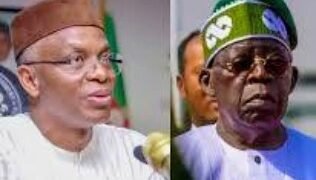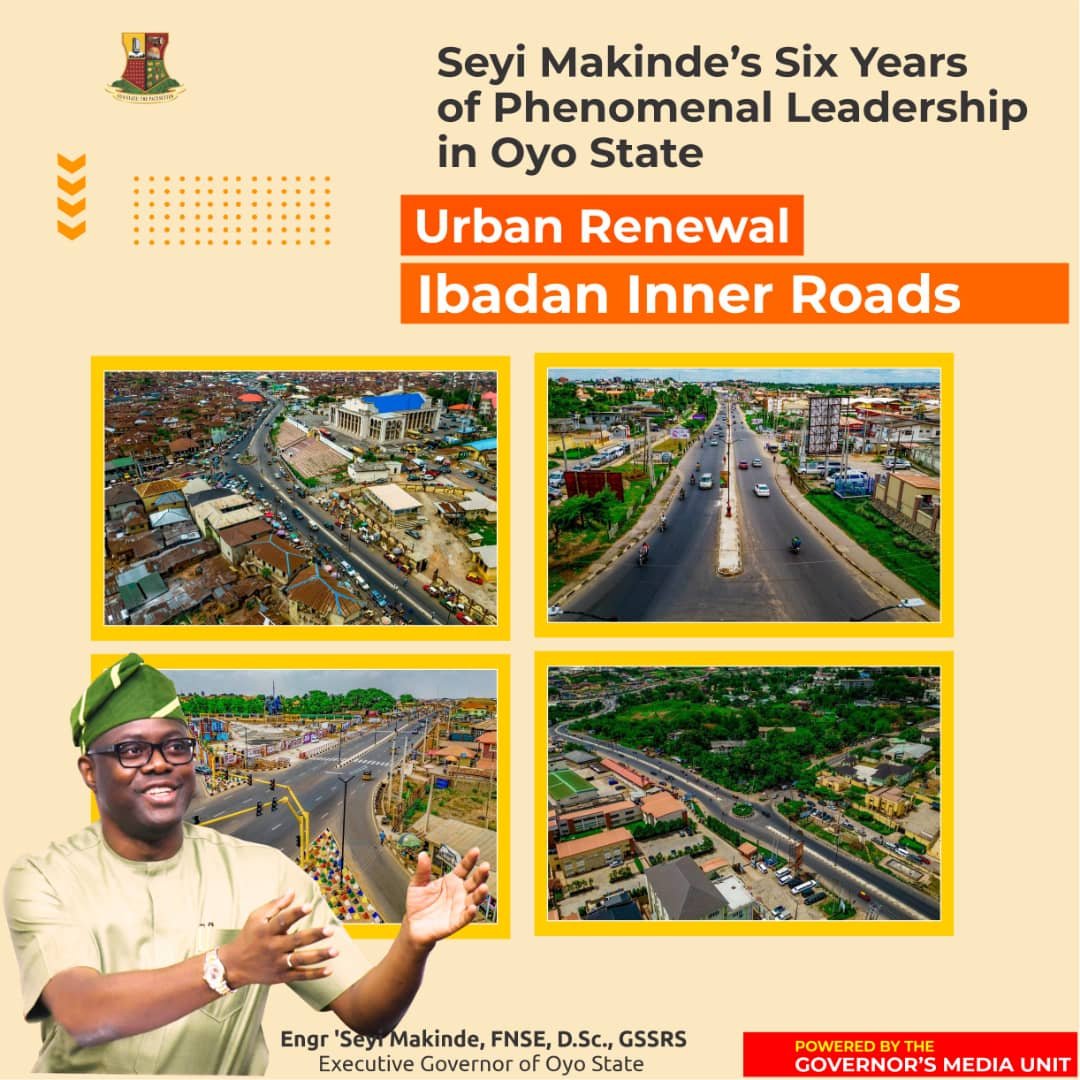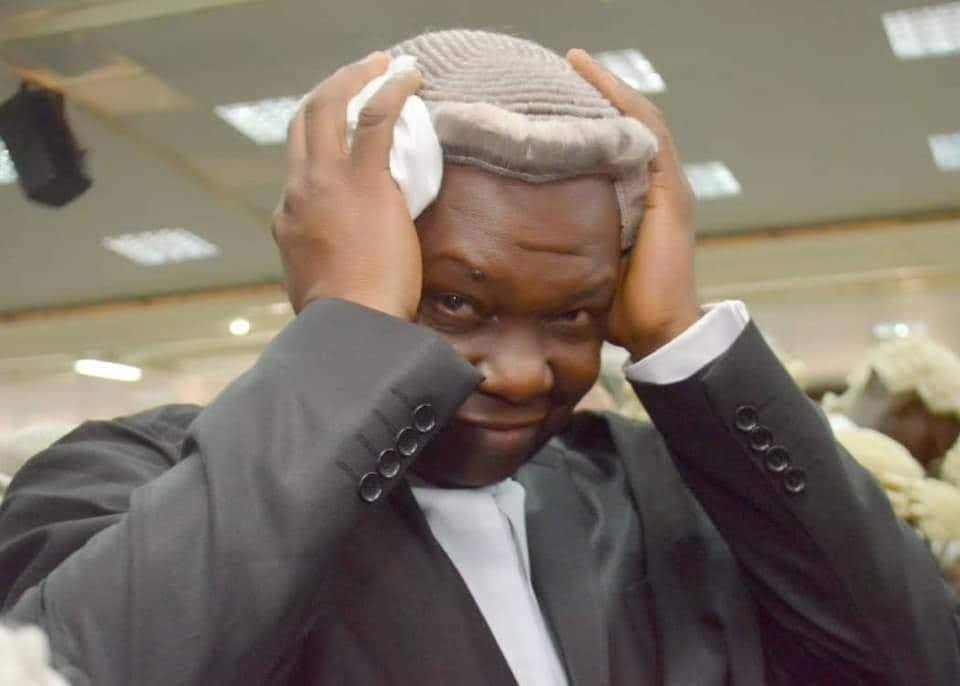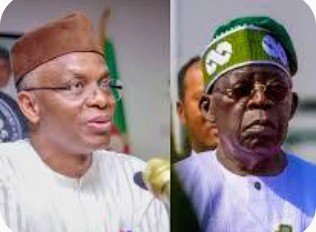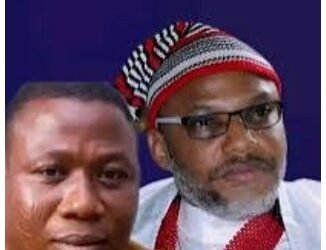Festus Adedayo
Was it better that President Muhammadu Buhari remained unapologetically deaf to all entreaties to address Nigerians or open a window into his mind and reveal a cesspit of foul-smelling hate? Peradventure there were still nationalistic remnants among his coterie of admirers, after last Thursday’s interview the president granted Arise TV, they would be at the crossroads.
Their dilemma may jolly well be addressed by a famous Maurice Switzer quote whose authorship had before now been a subject of controversies. Was it authored by Abraham Lincoln or celebrated humourist, Mark Twain? Anyway, Switzer, in a book written in 1907, had said, which I tinker with for the purpose of this discussion, that, “It is better to remain silent at the risk of being thought an ethnic bigot (inflection mine) than to talk and remove all doubt of it.”
If anyone was undecided whether Buhari was at the roots of Nigeria’s worsening ethnic crises in the last six years or so, that Arise TV interview removed all doubts. It revealed a president whose mind is a fertile breeding ground for viral ethnic divisiveness, an infection that is without any possible hope of redemption.
The interview brings an urgent need to conduct a psychoanalysis on the man at the Villa. I did and the result was prim, grim, and unsavoury. That perhaps was one good the Arise TV interview did for Nigerians. It ventilated the innermost recess of the mind of one of the most reticent closet presidents in Nigerian history.
With the interview, we were obliged the opportunity to scrutinize the hidden crevices of President Buhari’s mind. The white apparel he wore was apparently a deliberate ploy to associate purity of mind to him. It attempted to hide the disgusting sewers his inner being harbours. Presently, the maggots began to wriggle out, in the form of huge bile and rank hatred for the Igbo ethnic stock and crass disregard for the myriad other nationalities that make up the geographical expression called Nigeria. The disgust sipped out of every pore on his gangly frame.
While the world, in that interview, saw a feeble Muhammadu Buhari, what a deeper scrutiny would reveal is a re-sprouting Milton Obote, a notorious Ugandan despot and a Buhari who sees anyone but Fulani as the British saw Mau Mau fighters in colonial Kenya. Obote was a two-time Ugandan leader who led his country to independence from the British in 1962 and served, first as Prime Minister from 1962 to 1966, President, 1966 to 1971, and after his Idi Amin ouster in 1979, Obote ruled Uganda again from 1980 to 1985. In 1983, Obote of the Oyima clan of the Northern Ugandan Lango ethnic group exacerbated ethnic tensions in Uganda and launched a bloodcurdling military expedition called Operation Bonanza which resulted in the death of approximately 100,000 to 500,000 Ugandans.
Asked about separationist agitations in Nigeria’s Southeast, Buhari beamed that cynical smile of his, laced with a hidden serpentine venom, and said arrogantly, “That IPOB is just like a dot in a circle. Even if they want to exit, they’ll have no access to anywhere. And the way they are spread all over the country, having businesses and properties. I don’t think IPOB knows what they are talking about. In any case, we say we’ll talk to them in the language that they understand. We’ll organize the police and the military to pursue them.”
In the president’s manifestly narrow reading of the Southeast geopolitical zone, the Indigenous People of Biafra (IPOB) approximates the Igbo nation that owns assets all over Nigeria. This reminds me of the gory narrative of the Kenyan Mau Mau war. The rebellion of Mau Mau Uprising raged from 1952 to 1960. It was waged in the British Kenya colony between the Kenya Land and Freedom Army (KLFA) populated by Kikuyu, Meru and Empu people of Kenya, against the white European settler overlords.
Just like Buhari, to the British, every Kenyan was a Mau Mau who merited being mowed down mercilessly. Headed by a guerilla fighter called Field Marshal Dedan Kimathi, the moment Kimathi was captured on October 21, 1956, it was obvious Britain had extinguished the Mau Mau uprising. In that spiteful summation of the Igbo uprising, Buhari was further alienating a people who only needed a sense of belonging and equity in Nigeria.
How else can a president, whose mind is this poisoned with venomous hatred, be told that just as there are criminals among his Fulani stock, so also are there outlaws in Igbo land who believe that violence opens the trough of peace? The sad thing is that, as Buhari exhibits this crude hatred for Daniel Kanu and his Igbo people, his baseless venom grooms a generation of dangerous sympathizers to the IPOB cause, just like the killing of Mohammed Yusuff is the precursor of the subsisting Boko Haram insurgency.
In Buhari’s unguarded ire, the Igbo have come to see his selective criminalization of the Southeast as a manifestation and continuation of the First Republic Hausa-Fulani hate and pogrom against their people. Buhari is, through this hatred, promoting Kanu beyond his relevance.
With the benefit of hindsight, President Buhari’s dot-in-a-circle theory is a product of a lazy mind and a narrow reading of the historical trajectory of secessionism in Nigeria. First, he forgot that a sentence, like a whole, is not complete without a full stop, which is a dot. By that very fact, Nigeria needs his so-called dot-in-a-circle to turn full circle.
Again, what he and his commissars hounding the Igbo out of Nigeria should know is that the separatist agenda is lawful and not criminal. Indeed, the United Nations recognizes it as a fundamental human right. Over time, that mantra of Nigeria’s unity being non-negotiable has been dissected to be void and a refrain only on the lips of suppressors of people’s rights.
Northern Nigeria is historically known to be the region that first threatened to secede from Nigeria when the Northern delegation to the 1950 Ibadan Constitutional Conference warned that “unless the Northern region is allotted 50 per cent of the seats in the Central Legislature” it would ask for separation from the rest of Nigeria on the arrangements existing before 1914. Again in 1966, it attempted to secede from Nigeria through its Operation Araba. It is obvious that, due to the manifold injustice, inequity, and oppression of the Buhari government in the last six years, separatist calls have risen to a proportion that is unprecedented in history.
At the core of those calls is this administration’s equivocation of seeking peace when it dishes a broth of injustice to the other partners in the Nigerian federation. In the Southwest today, separatism is gaining traction. If Buhari hounds that dot-in-a-circle Southeast out of Nigeria, he will do well to know that this petulance will open similar doors of secession to other ethnic groups that have been reduced to slaving partners in Nigeria’s pseudo-federalism. This was perhaps the sense in that statement attributed to Immortal Obafemi Awolowo when he allegedly said that if Odumegwu Ojukwu’s Biafra was allowed to secede, the Yoruba would have no other option than to follow suit.
One other slant of Buhari’s Arise TV interview which revealed the nocturne enveloping his mind is his obsession with the Niger Republic, Fulani herders’ grazing route, and his narrow reading of the serious security concern in the land. These three issues are a continuation of his dogged and relentless defence of his Fulani kin. His simplistic explanation of incineration of billions of Nigeria’s patrimony into the construction of a rail line from Lagos to the Niger Republic is a sickening logic that bears every imprimatur of his Fulani ethnic group’s notorious disrespect for international boundaries. How vast can Niger Republic’s crude oil find be to constitute such a humongous threat to Nigeria’s economy, such that Nigeria had to now scamper to please this imaginary oil god with such monumental infrastructural project?
A la the President, because his Fulani, Kanuri and Hausa cousins reside in Niger, Nigeria must abandon its suffering people to please Niger? If this reasoning is not otiose, I wonder what else is.
In the interview, Buhari merely regurgitated Abubakar Malami’s lazy thesis of constitutional human rights for cattle. He confirmed that he ordered the AGF to exhume the grazing routes gazette of the 1960s, just to find a legal justification for the rapacious quest of his Fulani kin to turn the whole of Nigeria into their cattle ranch. “What I did was ask him to go and dig the gazette of the First Republic when people were obeying laws. There were cattle routes and grazing areas. Cattle routes were for when they (herdsmen) are moving up country, north to south or east to west, they had to go through there,” he said. Then, he lapsed into the solipsism of a 20th century animal husbandry where straying cattle’s herders were arrested and ordered to pay fine by the Khadi (judge). With that kind of reasoning, one shudders to discover that a human being could indeed live in the 21st century and remain anachronistic like a Stone Age provincial overlord!
To confirm that the president’s thinking is actually frozen in the Antarctic glazier, as against the norm in a supersonic 21st century, Buhari is still fascinated with that antiquated cattle rearing model he was born into. He does not give a hoot if the whole country is propitiated to the god of rampaging Fulani herdsmen. He romanticized his cattle-rearing model thus: “People were behaving themselves and in the grazing areas, they built dams, put windmills, in some places, there were even veterinary departments so that the herders are limited. Their route is known, their grazing area is known.”
Unapologetically, like a conquistador bent on acquiring territories and demanding vassals, Buhari magisterially proclaimed that “those who encroached on these cattle routes and grazing areas will be dispossessed in law and try to bring some order back into the cattle grazing.” The fact that countries like Brazil and Argentina which have larger herds of cattle practice a modern ranching system which gives them humongous economic and environmental benefits matter little to our President who proudly declares himself a herdsman in the ilk of his marauding brothers!
The pertinent question to ask is, what part of the world still retains a leader like Nigeria’s whose mind reeks this disgustingly of ethnic impurities? Why is Buhari this stubbornly and illogically obsessed with this antiquated grazing model, in a world that has since left this Acheulian culture mindset? If Buhari was this much in love with the exhumation of the past, how come he didn’t ask that the 1963 constitution be exhumed?
The other leg of Buhari’s tripodal assault on logic in that Arise TV interview was how he simplistically dismissed the raging Fulani herders’ killings that rocks Nigeria. To Governor Samuel Ortom, whose state Fulani herdsmen have turned into a mobile mortuary, he had this doggerel: “The governor of Benue said I cannot discipline the cattle rearers because I am one of them. I cannot deny that I am one of them.” No solution, no apologies. He then went further to tell the story of how two governors of the Southwest visited him. “Two governors from the South-west came to tell me that the cattle rearers in some of the forests are killing farmers while their cattle are eating their crops. I told them you campaigned to be elected and you are elected. I told them (to) go back and sort out themselves,” he announced, pretending to forget that in the kind of obtuse federalism we practice in Nigeria, governors neither control the Police nor the Army! There were insinuations that he was referring to Governors Seyi Makinde of Oyo and Rotimi Akeredolu of Ondo States.
Last week, Oyo State literally went up in flames, drenched in tears. Igangan, a town in the Ibarapa area of the state, was visited by one of the most visceral carnages ever by Fulani herders who had apparently come for reprisal against their eviction from the land. Properties, including the palace of the town’s monarch, were set ablaze by these sons of perdition. When the quake settled, about 15 people lay dead. Governor Makinde, amid weeping, wailing, and gnashing of teeth of the natives, visited and soberly accepted responsibility for the killings. “We failed you,” he said, his voice soaked in melancholy. Though the counterfeit federalism practiced by Nigeria has castrated state governors security-wise, reducing them to window-dressing sissies, Makinde’s acceptance of responsibility was seen as a mark of leadership.
In the true sense of it, that apology should have come from Buhari as the man who failed woefully to protect the people. Not only didn’t he show any remorse, but no word of apology also came from him to Igangan. It was as if in Buhari’s mean veins, no blood but cow milk flows. That is why his attempt to shift responsibility above is sadistically lame and laughable. Igangan people and all victims of herdsmen are no less man than Buhari’s Fulani killers. They are only hamstrung by legally blocked access to AK-47 which the killers wield. That AK-47 request made by Makinde is a direct test of statesmanship for Buhari who holds the knife and the yam on the control of violence. If he is not for the aggressor in the fight against terror, he should grant the request of the Oyo State governor then watch if Igangan will ever happen again.
Those who accuse the governors of failing to provide security for their people, a tame and puerile route which Buhari also trod by that his hypocritical comment, is not being fair to them. If Makinde, Akeredolu, or Ortom, for instance, acceded to the request of arming their people with AK-47, this Fulani presidency will give them the Zamani Lekwot treatment. Do you remember how that General was almost executed for allegedly arming his people in the Zangon Kataf war?
Thank God, elders of the land like Olusegun Obasanjo, Abdusalami Abubakar and others are said to be meeting and will visit Buhari presently. Buhari has morphed dangerously and can use his obsessive hate for others and malicious Fulani clannishness to set Nigeria on fire. Yoruba always ask that elders should wade in, at a critical moment like this, lest a loony make barbecue of the remains of his deceased mother. The Buhari government is in the autumn of its relevance. The symbolism of the end is all we see – leaves are falling and it is haunted by literal death. As same Yoruba will say, the Buhari market is at the edge of its tethers, winding up and leaving only remnants of those who display their wares – oja ti tu, o ku pa’te pa’te.


